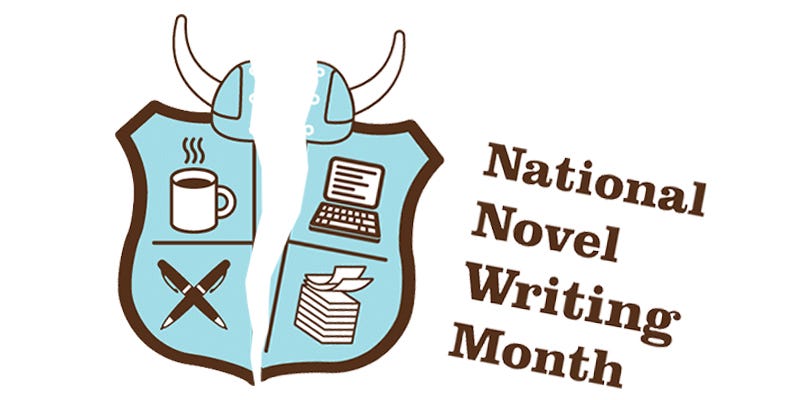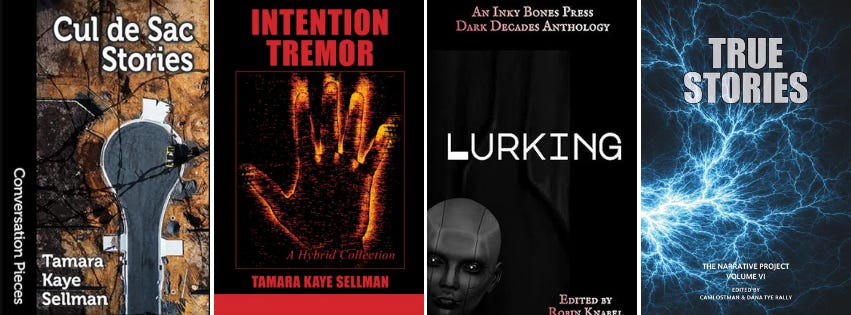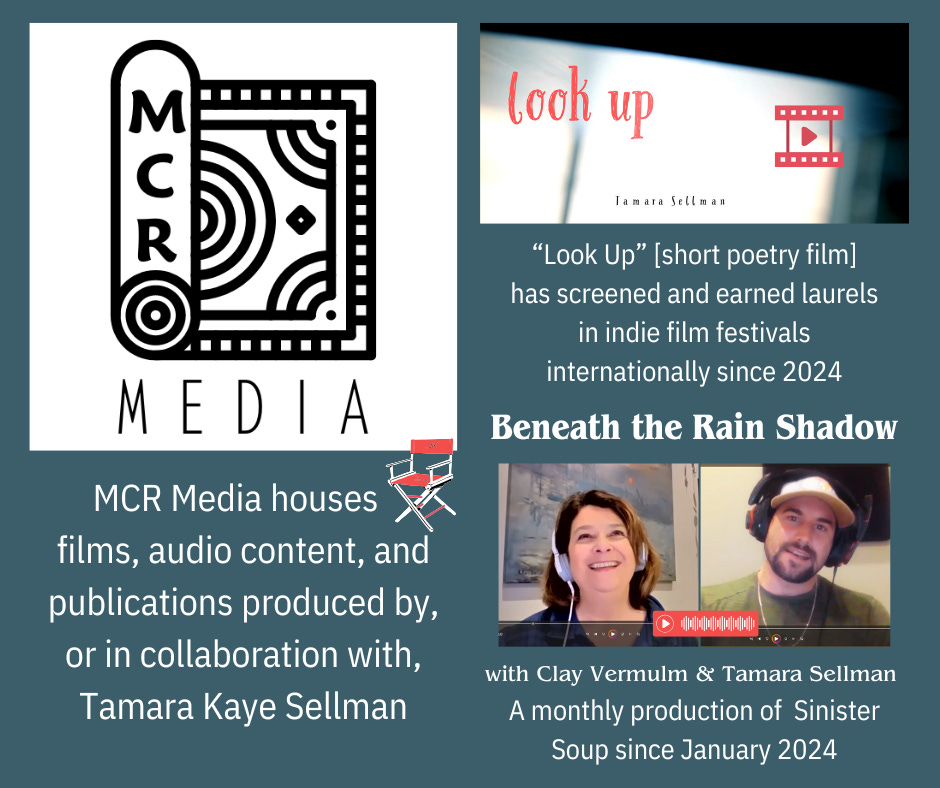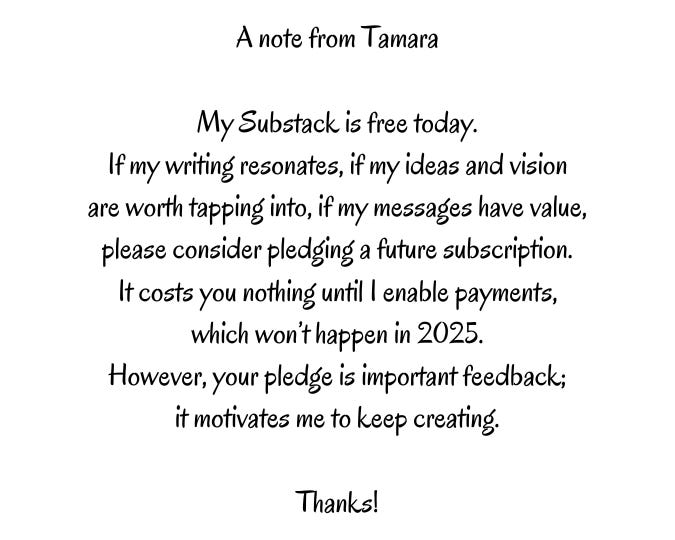Rhymes with Camera: Fare Thee Well, NaNoWriMo
The community-based writing experiment drowns in a sea of woes, but leaves behind an interesting legacy.
“NaNoWriMo is shutting down.”
Those were the first words I saw when I opened up my BlueSky app yesterday, and because that was April 1, I thought it was a joke.
Literary Hub posted the article (and the graphic below), and I found myself torn with how to feel about the end of National Novel Writing Month.
Let me be clear. Yes, I know the reasons behind some of this downfall (keep reading if you don’t).
But I’ve also “won” NaNoWriMo four of my five attempts, and that’s not nothing.
About NaNoWriMo
No need to rewrite history. Wikiwrimo covers the original intent of NaNoWriMo the way I remember it:
“[National Novel Writing Month] NaNoWriMo was founded by Chris Baty in July 1999. Twenty other people participated that year, all from the San Francisco Bay Area. The project began … because Baty and his friends … "wanted to write novels for the same dumb reasons twentysomethings start bands."
…After grabbing the shortest novel on his shelf (which happened to be Aldous Huxley's Brave New World) and doing a rough word count, the number that Wrimos today strive for was set in stone.
…Six of the twenty-one participants, including Baty, completed the challenge.
…After 1999, NaNoWriMo was moved from July to November to take advantage of the miserable weather.”
That’s the NaNoWriMo I participated in.
(If only they had picked January instead… NaNoWriMo and Thanksgiving have been at loggerheads over the timing for a couple of decades now for so many writers.)
Participants have been prompted to write 50,000 words in a month’s time (about 1667 words a day) between November 1 and midnight on November 30; then, they submitted a scrambled version of their manuscripts to prove wordcount in order to get the “win.”
It was always a thrill for me to get that confirmation message, that I had “won.”
My track record—
WIN: 2007 (Fiddlehead's Odyssey)
WIN: 2008 (The Lost & Found series, Book One)
WIN: 2011 (And I Feel Fine)
DID NOT COMPLETE: 2021 (The Flare)
WIN: 2022 (Eminent Domain)
Of course, the wins aren’t about the badge or other gamified boosts you got along the way… though these were fun and helpful incentives. I especially loved the global wordcount battles.
Living in Seattle (always a high wordcount community) meant I belonged to a team of writers; it literally inspired me to write everyday to contribute more words to the team effort. We won the world WriMo wordcount almost every year back in those early years before they abandoned the global competition.
Other benefits became more clear to me after the fact. I began to see what I’d gained as a writer as a result of participation, learning how to:
write a novel from first draft to completion, avoiding the common rookie habit of continuous rewriting of the first section.
outline a plot based on a classic work of literature (in my case, The Odyssey).
get comfortable with what Anne Lamott describes as a “shitty first draft,” thereby eliminating the perfectionist behavior that previously stifled me as a writer.
write “the end” for a longform piece of writing—easy to do with short stories… not so with novels.
give myself permission to experiment. I attempted YA fantasy, a paranormal mystery series, a novel-in-stories, a multiple POV novel, and my current work-in-progress (set during the pandemic).
participate in live and online write-ins (different than critique groups).
respect my skills and capacity: one year, I was behind and wrote 10,000 words in one day.
prioritize my writing life by learning how to say No to friends and family so that I could have brainspace to write.
establish a writing habit that remains with me today.
In many ways, these mirror the things one might learn in an MFA… without the hefty pricetag and the huge time commitment that a working mom like me could never muster on my own.
So what’s the problem? Why do people hate on NaNoWriMo so much?
Some writers with support systems for their writing lives have never attempted it, so they don’t know firsthand its value.
It’s easy to say, “Why don’t you just write 50,000 words in a month without all the games?” and my answer would be, “Do you have any idea what it’s like to try to write anything—even a poem?—while being a working mom?” The answer, of course, is No, because these judgey types are usually making these statements from a position of privilege.
NaNoWriMo Scandal #1: Perhaps the best reasons to hate on the org, accusations leveled in 2023:
a long string of allegations of exploitation and sexualization of minors on the program’s forums
lack of background checks for volunteers interacting with minors
accusations of dangerous behavior from volunteers community leads (bullying, racism, homophobia, transphobia, ableism)
partnering with predatory publishing services looking to scam writers out of their money for the promise of publication
NaNoWriMo Scandal #2: A (misunderstood?) misstep in their AI policy stated in 2024. Literary Hub covers it better than I can. I also think that a partnership NaNoWriMo made with the AI program, ProWritingAid, destroyed any credibility they expressed about caring about disabled or low-income writers. …Anyway, how utterly irredeemable to say that it’s okay to fire up a robot to do in less than a day what creatives are trying to attempt as human beings in 30 days? Oopsie, that was a bad call, NaNo.
I do want to say this… hating on ALL artificial intelligence (and not just generative, which is the AI poised to steal from and replace human authors), is a MISTAKE.
I use certain kinds of AI when I have issues with my MS related to speech and vision; assistive AI is basically crutches for broken legs, people. Are you really against that? Because that’s some ableist shit, right there.I really do wish anti-AI folks would acknowledge how many kinds of AI exist—many that we, all of us, use every day—and how they’ve truly made life better for all of us. «…off soapbox…»
Money troubles. The early Chris Baty era was run on a shoestring and volunteers and cost them a lot of time and money; no doubt there was burnout and perhaps it’s why Baty left. NaNoWriMo was turned over to new blood (Grant Faulkner), who ushered in more automated tech to help with the organization, and then later, it was turned into a nonprofit. At the end of its run, after these scandals led to a precipitous drop in participation, lost funds from merchandise purchasing and sponsors, plus general lack of trust and confidence in the program, inspired the latest honcho, Kilby Blades, to finally call it quits.
You can read all about these issues in multiple articles across the web, so I’ll leave you to do that homework.
But let’s not be so disenfranchised against the organization that we forget that its roots were healthy.
There have always been, and will always be, scandals
in arts communities. Humans gonna human. A reminder:
In this age of raging political Dumpster fires, it costs nothing
to be kind. Try not to join the bully pulpit. It takes courage
to eschew the lockstep mob mentality so characteristic
of social media in 2025 and make an effort to remember
the benefits millions enjoyed before the bad actors arrived.
Remembering the good doesn’t silence or erase the bad
I get it. It’s easy to throw the baby out with the bathwater on this—and really, any—bad news stories these days.
But it’s that kind of binary thinking that will keep us divided, anxious, lacking trust, with our heels dug in.
NaNoWriMo’s governance failed its members, for sure, and young people were put at risk, no question.
But I remember the “old days” when, in the real world, as mistakes are made (or crimes committed), a review is convened, punishments leveled, reparations paid, corrections built into systems so that they worked more safely for the whole.
Not to suggest that NaNoWriMo is salvagable, because I don’t think it is.
But I do think we can cast a glance to its legacies and not forget what it could still be, had it been run differently.
How many write-ins (live or online) have you attended during the pandemic and ever since? Where were they first inspired and practiced… but through NaNoWriMo? I just sat in one this morning; me in Seattle, the group in Chicago. I’m grateful to have them.
How many writing programs have become more accessible to writers who can’t afford MFAs (which result in tens of thousands of dollars in debt, irrecoverable for most writers who will never recover that kind of investment)? NaNoWriMo cleared a path for affordable writing workshops online after showing the world there was a huge unmet need for them. I’m a big believer in these as an alternative to the MFA.
April brings us NaPoWriMo: National Poetry Writing Month. Are you participating? If you are, and it’s not called NaPoWriMo, but something else, it’s still something inspired by the original NaNoWriMo. Other kinds of community creative efforts like these have spun off as well, such as National Novel Revision Month, National Blog Posting Month, and a host of NaNoWriMo knockoffs and alternatives. We can continue to aspire to make our own events from here on out. How awesome is that?
For these, one must still recognize and credit the original WriMos, Chris Baty & Co, who started this whole shebang back in 1999. Nobody then could have known how it would grow and sour and finally end in shadow like it has. Let’s all try to remember that.
It’s where I’m going to put my energy in light of the news about the shuttering of NaNoWriMo. Energy flows where attention goes, and if we want to have hope and light in this world—a place where we’re facing down fascism, genocide, economic destabilization, human rights crises, xenophobia, and more, right here in the US—it has to start with us.
Thank you and fare thee well, NaNoWriMo.
*To be clear, “winning” means completing 50,000 words in November. There is no prize money, nor does it imply I’ve actually finished writing or publishing any of these drafts, because I haven’t. But what I do have are worthwhile manuscripts I want to complete and share with the world.
Clay Vermulm and I are dotting Is and crossing Ts for our upcoming collection of horror short fiction set in the PNW, Rain Shadows, which goes to press very soon; keep an eye out for our cover reveal coming this month! Our goal is to introduce our book on June 13 at StokerCon in Stamford, CT, with pre-order offers and events prior and official launch parties and events after. Stay tuned!
I have an IMDB page!
When “Look Up” earned third place laurels at the WRPN Womens International Film Festival in Rehobeth Beach, DE, I was gifted access to my own IMDB page. I recall filling out the required data, and it took a really long time. Then I kinda forgot about it. Well, look what I found in early March: My IMDB page!
Film projects: On the festival circuit
“Look Up”
No news to report on my baby still making rounds on the film festival circuit (see below where it’s already appeared). I have at least five submissions still out and will keep you posted!
Film projects: Progress report
I have four new films in the hopper, all of them poetry films: “Snowmelt,” “Lunatic,” “A Word After A Word After A Word,” and “Diary of a Syndrome.” You can read all about them at the MCR Media page.
Other experiments
I am also working on a screenplay for a short indie film, “Snapdragon Season,” which I may also turn into a full-length stage play. It’s a film I’d also like to try to experiment with using subjective POV (meaning you only see the story through the eyes of the main character).
BOOKSHOP LOCAL AUTHOR FOCUS FOR 2025
There are dozens of titles for you to check out at The Sellman Shelf in BookShop and I’m still adding new authors with direct ties to Kitsap county. I’m telling you, we are legion out here in the foothills of the Olympics! More coming soon!
Have other titles to suggest? Send them my way!
Might you have already read and enjoyed these books? Why not give their authors a nice review in BookShop? It really helps them to be found and appreciated by readers.
APRIL: WHAT’S HAPPENING
Apr 12: A Most Hallowed Spring, HWA reading event, 7-9p, Kirkland Arts Center, Kirkland, WA [free to the public, come one, come all!]
Apr 17-19: Norwescon, SeaTac, WA [link]
Apr 23: Fermented Fiction podcast, “The Substance” debate recorded [link to show forthcoming]
For links forthcoming, you can always check out my detailed calendar
At this time of year, it’s often too early to get more than a few things out of the garden, so I’m leaning on garden produce I’ve grown and then “put by” somehow.
This particular recipe puts frozen vegetables to good use. It incorporates butternut squash that’s been cut into cubes, then frozen, as well as flash-cooked green beans that ended up in bags in the freezer.
I try to maintain a fresh basil plant through the winter; it sometimes works, it sometimes doesn’t. And of course, the garlic in this recipe comes from my pantry stash harvested from last July.
For this recipe, I used prepared frozen squash from Trader Joe’s but my plans for the raised beds include a small variety of butternut that grows on a trellis (‘Butterbaby’) and I love my ‘Castandel’ bush bean, which produces a slim, sweet French-style green bean all summer long.
Click here to access this recipe through the dedicated Garden to Table recipe page.

Per folk wisdom, March absolutely came in like a lion and went out like a lamb. That means I’m now in the garden, pulling weeds, pruning branches, starting seeds, and making friends with outside living after way too many weeks cooped up inside. Looking forward to more pictures of the garden and future hikes this month! Happy April! ~ Tamara
























